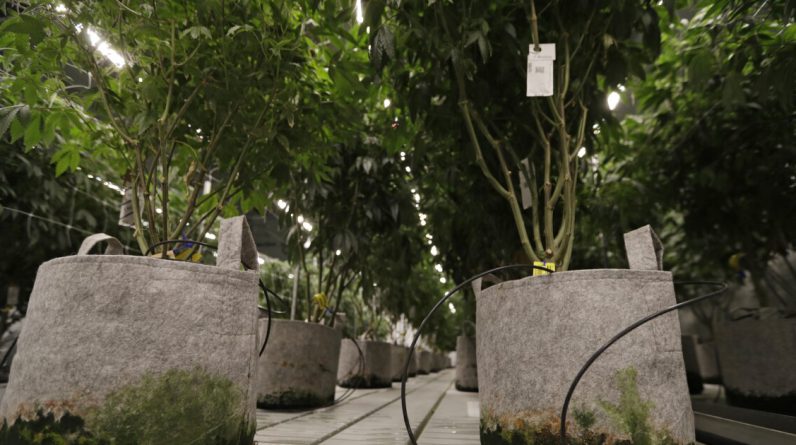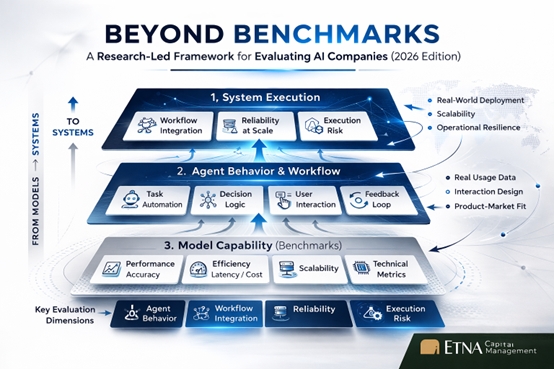
There are few industries that don’t rely on some form of technology. Cannabis is no exception, with growers and retailers leveraging the latest innovations for cultivation, product management and supply chain tracking.
Artificial intelligence represents the next wave of tech for a traditionally labor-intensive sector – in theory, AI systems could control temperature and humidity in the greenhouse, or identify sick plants before a deadly disease spreads throughout an entire crop.
AI is still relatively uncommon for a nationwide industry in its infancy. Yet, AI’s ability to comprehend and analyze vast amounts of information could more reliably drive critical production decisions, noted Glen Persson, senior IT director with Acreage Holdings, a medical marijuana company with dispensary locations in Northeast Ohio.
“Almost any kind of data the company generates can drive better insights,” said Persson. “Whether that’s cultivating plants, irrigating, or setting up schedules for lighting.”
The growth of ChatGPT and other large language models – a type of AI that uses enormous data sets to summarize and predict new information – has Persson excited about improving the business through a deep information dive.
“Right now, we can look at Excel sheets or query different databases,” Persson said. “But utilizing an AI it’s able to say, There’s a variance here; if this variance connects to this other data point, and if you do something a little differently, you’ll get a better result. Automating that kind of problem-solving is something I’m really excited about.”
By harnessing machine-learning algorithms, AI can predict crop yields, optimize harvest schedules and suggest improvements in cultivation techniques. Installing sensors in the field to record plant images, meanwhile, could prevent crop diseases from occurring as frequently, said Persson..
A deep data dive could help growers make immediate adjustments in lighting or irrigation that otherwise would take hours, said TJ Richardson, who teaches an introduction to hemp course at Cleveland School of Cannabis, an accredited career-based institution for marijuana employees.
The cannabis sector’s high resource costs make such precise decision-making all the more vital, added Richardson.
“When you think of things like fertilizers, lights and irrigation supplies, those are exponentially more expensive for folks on the MJ side,” he said. “In cultivation, you would build an AI widget into your light monitoring system, and that would allow the machine-learning algorithms to tell what’s going on with your lighting. It allows that operator to make adjustments in real-time.”
Harder, better, faster, stronger
Ayr Wellness, a Miami-based cannabis company with a retail shop in Woodmere, currently analyzes product data to improve customer service. The business also employs non-AI temperature and humidity sensors before taking corrective action within its marijuana grows, said Ayr Wellness chief operating officer George DeNardo.
Adding artificial intelligence to the mix could result in even faster fixes, DeNardo said. An AI-powered irrigation system, for example, would immediately be triggered if moisture within a greenhouse dips below a certain threshold.
“The goal with AI is making real-time corrections,” said DeNardo. “You’re being proactive rather than reactive to alerts.”
AI is further poised to revolutionize the cannabis supply chain, noted DeNardo. By studying historical data and market trends, the technology could lock in inventory prices and track a producer’s stock more efficiently.
Customer service is perhaps a more immediate use case, considering the diversity of cannabis strains often unknown to the consumer, said Persson with Acreage Holdings. While an automated dispensary kiosk may simply regurgitate a product list, an AI-trained chatbot can answer questions tailored to individual needs.
“The chatbot will say, What experience are you looking for today?” Persson said. “Are you looking for something a little relaxing, or something more upbeat, and it will ask various questions on what (product) you’re trying to get. It might tie back to past purchases so it can recommend products that you might be interested in, instead of giving you a list of every product in the store.”
Rolling with the punches
That is not to say AI is a viable replacement for human bud-tenders, said Richardson, the Cleveland School of Cannabis professor. Wise dispensary owners will be proactive with the technology without relying on it entirely, he added.
“The real solution to AI and the cannabis industry is maintaining a balance between automation and human oversight,” Richardson said. “What humans do that AI can’t are things like providing empathy. Personalized interactions really can’t be replicated.”
Increasing the scale of data collection comes with privacy risks, said Richardson. To that end, cannabis companies must abide by privacy commitments, including promises not to use customer information to train or update their AI models.
Navigating the thicket of AI regulations will be another challenge for cannabis producers interested in artificial intelligence, said Ayr Wellness official DeNardo. As of December 2023, 17 states have enacted 29 bills focused on regulating the design, development and use of AI – last year, Congress proposed several dozen bills to safeguard against risks associated with the rapidly advancing innovation.
This leaves business owners with a complicated compliance environment where states have the final word, said DeNardo.
“Regulations are fragmented state by state, so you want more standardized regulations to prevent that,” he said. “Otherwise, it makes it more complex for us.”
There’s also the danger of AI giving out inaccurate information. Air Canada recently gave a partial refund to a passenger misled by a chatbot that inaccurately described the airline’s bereavement travel policy. Acreage Holdings IT director Persson expects these types of errors to rise and fall as AI develops – he suggests cannabis founders start educating themselves now to mitigate future trial and error.
“It’s very exciting – this stuff is growing exponentially almost every other day,” said Persson. “It’s going to touch this industry and provide some major changes in a good way. It will help bring costs down across the board for a lot of people, but it will take time for that to happen.”








